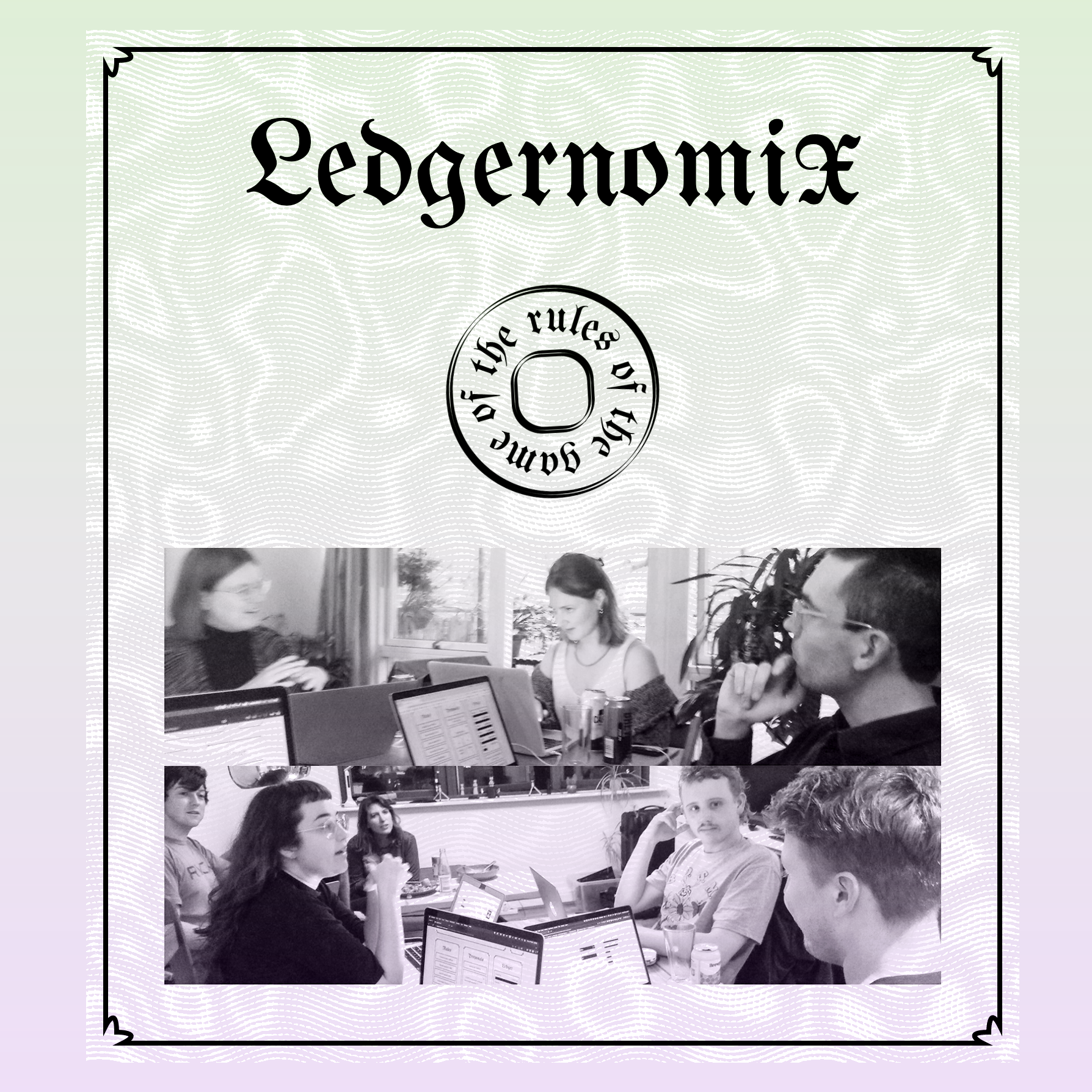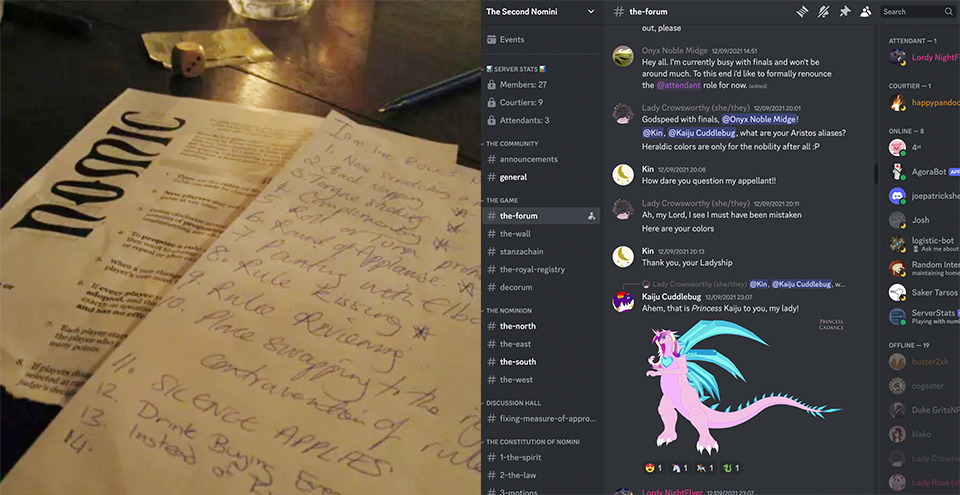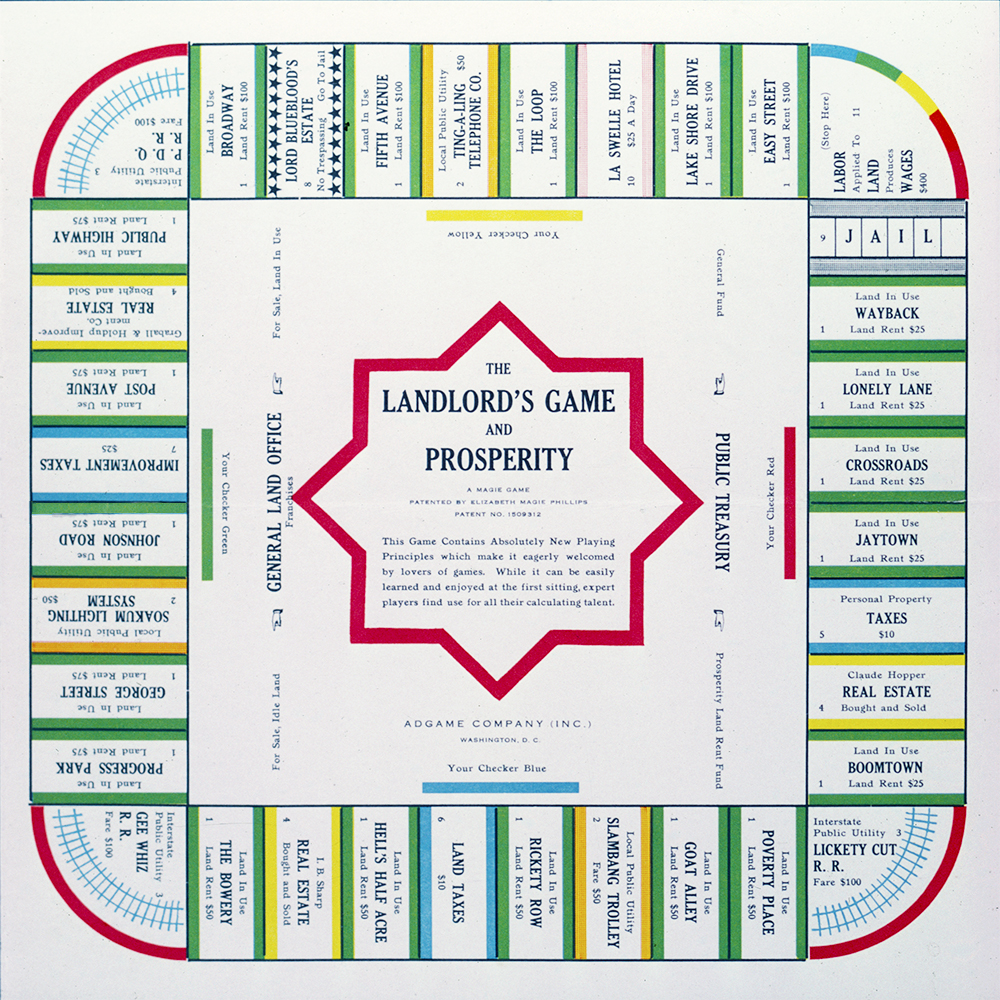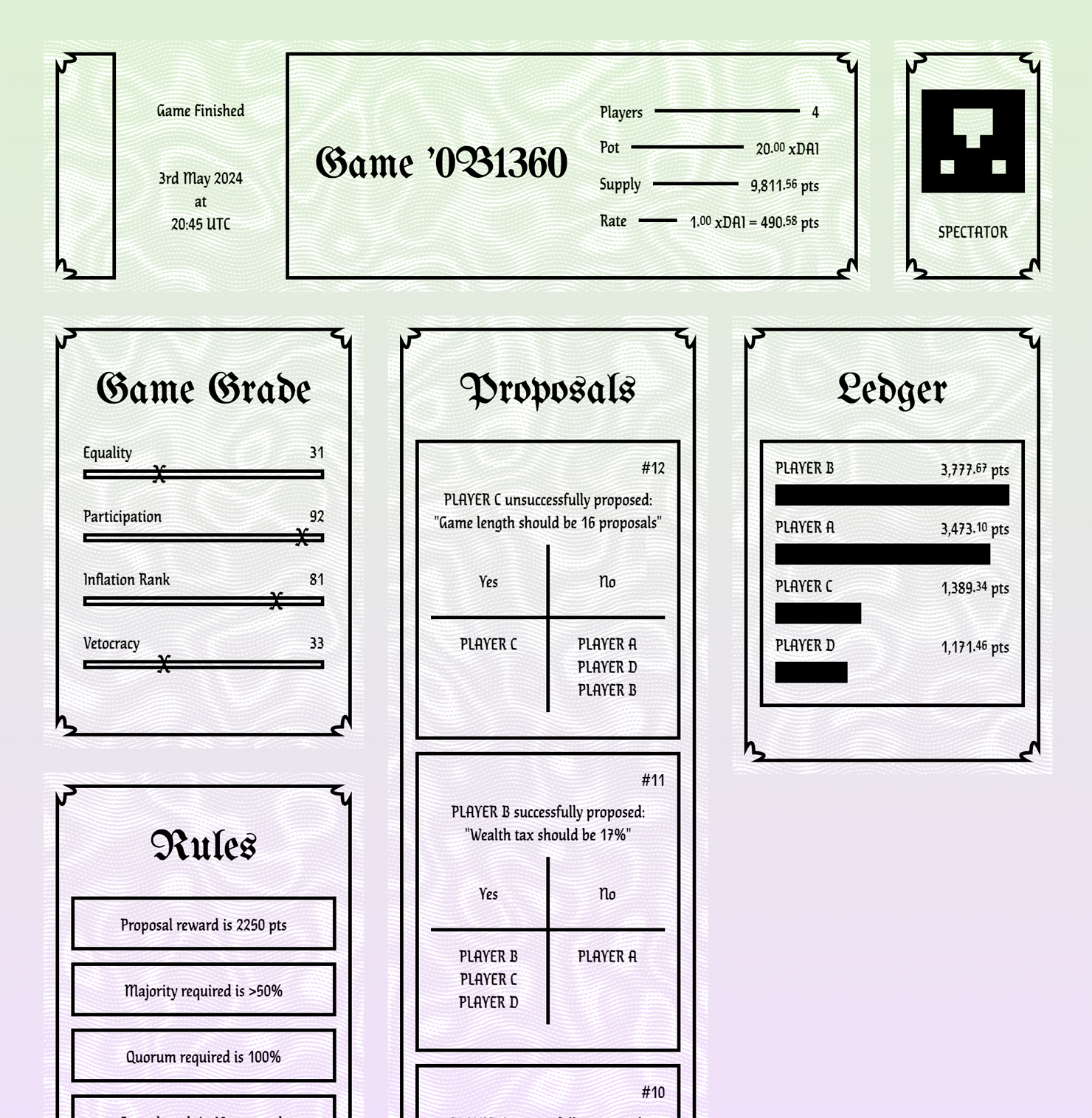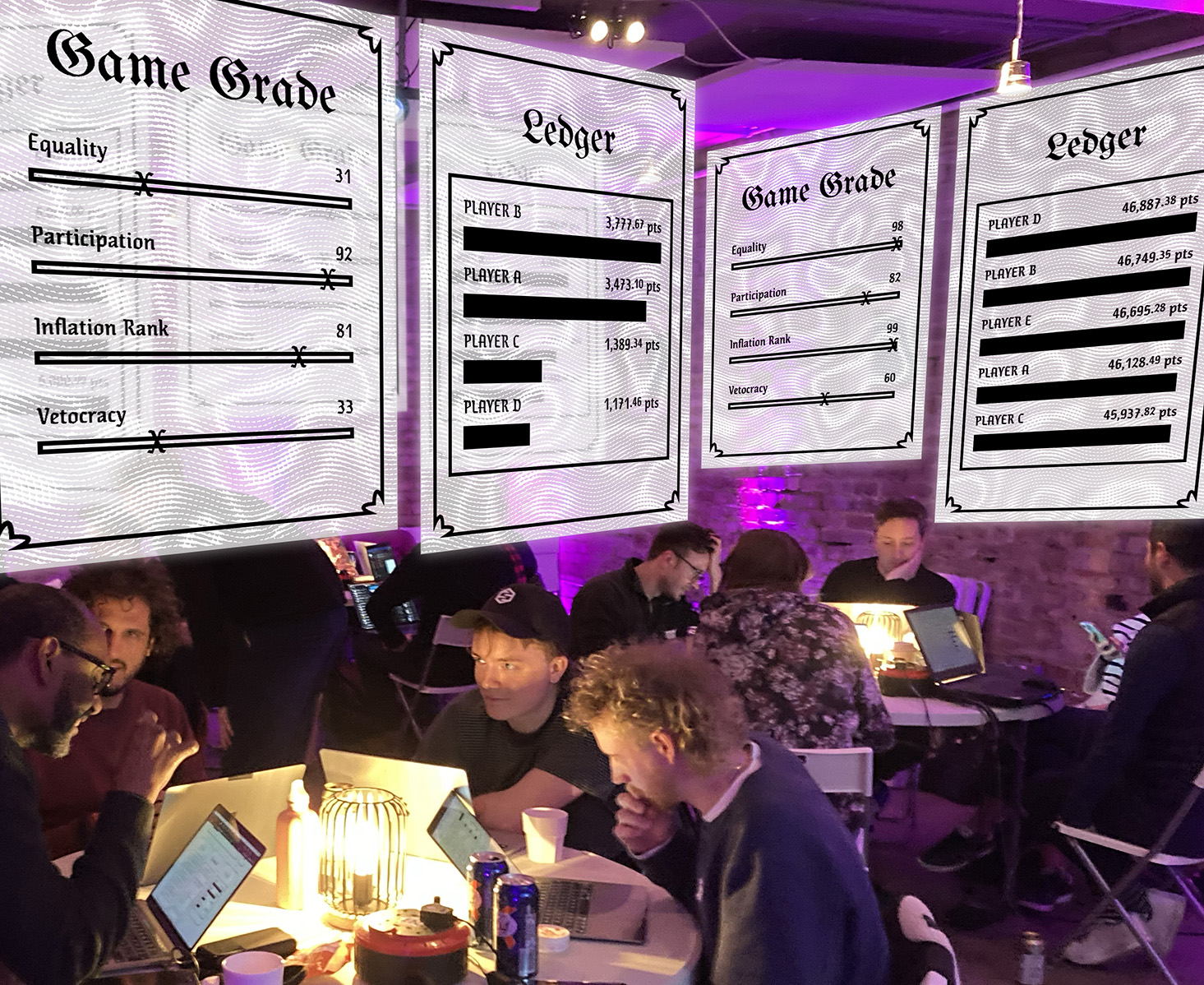Ledgernomix
2025-04-21Ledgernomix is a game I made with Tom Chambers. We launched it with an event at Newspeak House in London in May 2024.
It’s a game of political economy, played on a Blockchain with real cryptocurrency.
Each game of Ledgernomix is a distributed autonomous organisation, or DAO, governed by a contract that exists on the blockchain. It can also be looked at as a self-contained model economy and model parliament.
The players buy in by staking a few dollar’s worth of cryptocurrency when they join the game. These joining fees become the game’s pot.
Players take turns to propose changes to the game rules, engage in debate and persuasion, and then vote on the proposals, according to the rules they’ve established. During the game, points are issued to and deducted from the players, again, according to the rules they create. You can think of the points as that game’s own currency.
At the end of the game, the original pot of cryptocurrency is redistributed among the players in proportion to the distribution of points in the game. Games are also ranked on various subjective criteria for success – Equality, Participation, Inflation, Vetocracy.
Ledgernomix is influenced by Peter Suber’s game Nomic and Lizzie Magie’s The Landlord’s Game (AKA Monopoly).
Created in 1982, Nomic was the original game of the rules of the game.
As Peter Suber describes it:
“Nomic is a game in which changing the rules is a move. In that respect it differs from almost every other game. The primary activity of Nomic is proposing changes in the rules, debating the wisdom of changing them in that way, voting on the changes, deciding what can and cannot be done afterwards, and doing it. Even this core of the game, of course, can be changed.”
People continue to play Nomic today, on paper and in online groups, which can develop ridiculously esoteric bureaucratic structures. Our game Ledgernomix is necessarily much less free in form, as all the rules are defined by changing parameters in the blockchain code. However, its existence on the blockchain also gives the game a life of its own, beyond the players’ control. We observed that having “real” money at stake, even in small amounts, changes the social dynamic.
As a game about money, Ledgernomix owes something to Monopoly, or more accurately, to The Landlord’s Game.
That game was originally created by Lizzie Magie to promote the ideas of economist Henry George around land value tax, and she had two sets of rules – one where properties could be bought up and rents extracted until one runaway winner emerged, and another where land was held in common and rents paid to all, which she called Prosperity.
Obviously, it was the former version which became popular, first as a folk game in certain circles, and then as a commercial success when it was passed off by Charles Darrow and Parker Brothers as their own invention, “Monopoly”, in 1935.
I think the more equitable economic system Magie imagined might have been better in life but less fun as a game. In contrast, Ledgernomix doesn’t have two distinct sets of rules – players change the rules continuously, directing it towards winner-takes-all fun or more idealistic goals if they choose.
Aesthetically, I started by referencing founding documents, manifestos and constitutions. Another influence was the card game collectible aesthetic for digital goods which was emerging during the pandemic when we first started work on the game.
I was also thinking about Scott Alexander’s influential 2014 essay Meditations on Moloch, where Moloch, a god described in the Bible that demands human sacrifice, is used as a personification of the dynamics which force people to compete when they’d be better off co-operating.
Through the lens of Moloch, creating a decentralised system is like summoning a demon with a will of its own. This idea isn’t entirely new to the blockchain space – MolochDAO is a framework for issuing grants for research projects that leans in heavily to this aesthetic. I hope that the look of the Ledgernomix interface hints at some of that demonic potential.
While Ledgernomix is intended to work as a game – to be fun to play – it’s also an art project about the possibilities and pitfalls of decentralised systems. The game necessarily presents an extremely simple model of an economy. The aim isn’t to say that this or that system or rule would be bad or good in the real world. Experimenting with the system is the point, to observe the changing relationships between rules and people, and to watch the gap between intentions and outcomes.
